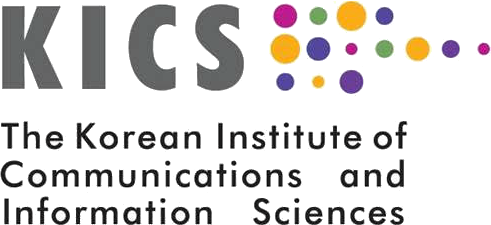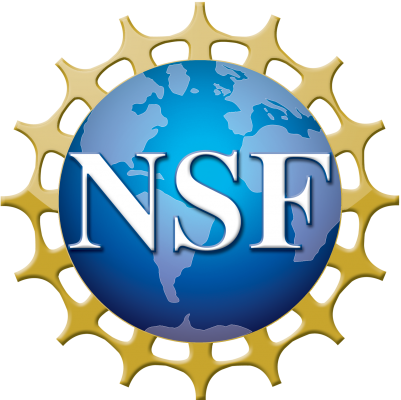Location: E2-3, Conference Room E, Coex
*All times are KST (GMT+9)
| Date / Time | Speaker | Title |
| Wednesday, May 18 9:00 – 10:30 |
Wen Tong | 6G Will Revolutionize AI |
| Vincent Poor | Distributed Machine Learning for Wireless Semantic Communication | |
| Dinesh Verma | 5G/6G Edge Computing and Enterprise Edge AI Solutions | |
| Meryem Simsek | Path to 6G | |
| Wednesday, May 18 11:00 – 12:30 |
Taesang Yoo | Role of AI in the 5G Evolution and 6G |
| Shilpa Talwar | 6G Connectivity in the Era of Distributed Intelligence | |
| Seong-Lyun Kim | Post-MAC for 6G: A New Horizon for Interference Control and Opportunity Detection | |
| Jungsoo Jung | Communications-computing convergence, a key technology for 6G | |
| Wednesday, May 18 14:00 – 15:30 |
Mérouane Debbah | From Connected Things to Connected Intelligence |
| Mansoor Hanif | The Cognitive Generation | |
| Karl Johansson | Event-triggered Control of Networked Systems | |
| Alain Mourad | 6G Technology Trends: A Deeper Dive into Reconfigurable Intelligent Surfaces |
Organizer:
Mehdi Bennis, Full Professor at Univ. of Oulu, 6G Flagship and Head of ICON
Title: 6G: Current Research Trends and Open Challenges
Since 2019, many 6G events have been organized around the world in order to pen down the next G. This workshop aims at understanding the latest trends and vision. This workshop will include 12 invited speakers from academia and industry whose goal is to discuss the latest trends in terms of research and visions from different wireless actors. The topics covered in the workshop include: edge intelligence, semantic communication, communication and control codesign, intelligent surfaces, among others. The full-day workshop consists of 3 sessions and each session has 4 talks. All the talks are invited talks without article submission.This is an invited Special Workshop that was solicited by the Workshops and General Chairs of IEEE ICC 2022. The main idea of this Special Workshop is to gather expert researchers (from academia an industry) to give presentations on their latest research works in this emerging field of research.
Invited speakers (Title, Abstract, and Biography):
Merouane Debbah (TII, UAE), CSO
Title: From Connected Things to Connected Intelligence
Abstract: The standardization for 5G wireless systems is maturing and researchers around the world have already started to look at beyond the 5G systems. Although the next G gossip is at a premature stage, this talk aims to provide an overview of the vision, challenges and key enabling technologies envisioned by the wireless community. The talk will mostly focus on the fundamental technologies and will discuss potential research directions to meet the requirements of next generation wireless systems.
Prof. Mérouane Debbah is Chief Researcher, AI and Telecommunication Systems at the Technology Innovation Institute (TII), which aims to be a leading global research centre dedicated to pushing the frontiers of knowledge. He is responsible for carrying out advanced research in AI and Telecommunications. Through his core areas of research across 5G, 6G, Machine Learning, Random Matrix Theory, and Game Theory, he is focused on making the planet safer and pushing the limits of innovation. Prof. Debbah’s research over the years has spanned fundamental mathematics, algorithms, statistics, information, and communication sciences. Before assuming his current role, Prof. Debbah was jointly the Director of the Mathematical and Algorithmic Sciences Lab as well as the Lagrange Mathematical and Computing Research Centre in Paris, France. He has managed eight EU projects and more than 24 national and international projects. Previously, he was Full Professor at CentraleSupélec, Gif-sur-Yvette in France. In addition, he held the role of Director of the Alcatel-Lucent Chair on Flexible Radio. This was the first industrial chair in telecommunication in France – established through leveraging close ties between CentraleSupélec and Bell Labs.
Mansoor Hanif (NEOM, Saudia Arabia)
Title: The Cognitive Generation
Abstract: The global vison for 6G is already exactly in-line with NEOM’s current work on building the first truly Cognitive Cities. NEOM can drive global collaboration to drive the vison of 6G as “CognitiveG” – the Cognitive Generation. NEOM is already working on research projects with KAUST – many of which fit with the vision of 6G. NEOM will also leverage the Applied Research Institute for Cognitive Cities to drive further global collaboration in this area. NEOM offers an integrated CONNECT, COMPUTE and CONTEXTUALIZE capability which is unique for the development of 6G. Key areas where NEOM is already driving new thinking which will flow into 6G include Remote Interaction, Human-Machine symbiosis, Converged networks for Urban Robotics and AR/VR/Holograms merging with physical assets.
Mansoor Hanif is Head of Interconnectivity (Interim), responsible for emerging technologies such as mixed reality, space, satellites, advanced robotics and human-machine interfaces. He leads the development of NEOM’s Digital Masterplan, and technology R&D collaborations with leading universities and think tanks around the world. Hanif also coordinates the interconnectivity between Communications & Connectivity, Data Protection, Water, Energy and Mobility in NEOM.
Karl H. Johansson (KTH Royal Institute of Technology, Sweden)
Title: Event-triggered Control of Networked Systems
Abstract: Motivated by the need for safe control of cyber-physical systems in intelligent transportation and process automation, we will in this talk discuss how an event-triggered control paradigm allows more efficient and flexible use of network resources. When multiple physical systems are coupled over a dynamic network, the limitations and time-sensitivity of the individual physical systems need to be carefully integrated into a service-layer architecture. We will show that the control-communication co-design tradeoffs can be formulated as optimization problems and that they under certain assumptions allow real-time distributed implementation. The results will be illustrated in experimental evaluations on automated vehicles and wireless automation.
Karl H. Johansson is Professor at the School of Electrical Engineering and Computer Science, KTH Royal Institute of Technology, Sweden. He received MSc and PhD degrees from Lund University. He has held visiting positions at UC Berkeley, California Institute of Technology, Nanyang Technological University, Institute of Advanced Studies Hong Kong University of Science and Technology, Norwegian University of Science and Technology, and Zhejiang University. His research interests are in networked control systems, cyber-physical systems, and applications in transportation, energy, and automation systems. He has received several best paper awards and other distinctions from IEEE, IFAC, and ACM. In 2017 he was awarded Distinguished Professor of the Swedish Research Council and in 2009 he was awarded Wallenberg Scholar, as one of the first ten scholars from all sciences, by the Knut and Alice Wallenberg Foundation. He was awarded Future Research Leader from the Swedish Foundation for Strategic Research in 2005. He received the triennial Young Author Prize from IFAC in 1996 and the Peccei Award from the International Institute of System Analysis, Austria, in 1993. He was granted Young Researcher Awards from Scania in 1996 and from Ericsson in 1998 and 1999. He is an IEEE Fellow and Fellow of the Royal Swedish Academy of Engineering Sciences and is a Distinguished Lecturer of the IEEE Control Systems Society.
Jungsoo Jung (Samsung, Korea)
Title: Communications-computing convergence, a key technology for 6G
Abstract: In next 10 years, the main consumer of wireless communications will be changed from human to intelligent machines that have almost no limitation on its sensing capability and generates or processes immense amount of data. 6G, the next generation wireless communications technology, needs to be designed considering such change while providing enhanced performance for human users that overcomes limited computing performance and battery capability of user equipments with various form-factors. In this talk, we will explore evolution of communication systems and its main driver from 1G to 6G, example 6G services and convergence between computing/AI and 6G communications, a key technology required to support forementioned two major future trends.
Jungsoo Jung is a principal engineer and a project leader of 6G advanced research project in Samsung Research. He had actively contributed to the standardization of 4G wireless system as a chairperson of 3GPP2 MAC working group. He also served as a cochair person of ITU-R WP-5D evaluation subworking group that defines evaluation methodology for 5G (called as IMT-2020) and assessed performance of candidate technologies including 3GPP NR. His current research areas include beyond 5G and 6G radio technologies, 6G network architecture and future mobile services. He received his B.S., and M.S. degrees in computer science from Korea Advanced Institute of Science and Technology (KAIST), Daejon, Korea, in 1999 and 2001, respectively.
Seong-Lyun Kim (Yonsei Univ, Korea)
Title: Post-MAC for 6G: A New Horizon for Interference Control and Opportunity Detection
Abstract: The 5G system is currently under its way toward successful deployment, bridging between wireless communications and vertical applications (e.g., city, factory, vehicles, etc). On the other hand, the research community launched 6G pilot projects, wherein white papers are talking about service scenarios in 2030. AI/Machine Learning is to be an important ingredient, known as either “AI for Wireless” or “Wireless for AI.” The talk will give insights on how the next generation media access control (Post-MAC) needs to be shaped in such an AI/ML era. Speed, accuracy, delay, energy-efficiency, and data protection are KPIs in Post-MAC. The talk takes examples from our testbed experience, and will share our principles for the Post-MAC.
Seong-Lyun Kim is a Professor and Head of the School of Electrical & Electronic Engineering, Yonsei University, Seoul, Korea, heading the Robotic & Mobile Networks Laboratory (RAMO) and the Center for Flexible Radio (CFR+). He was co-directing H2020 EUK PriMO-5G project, and leading Smart Factory Committee of 5G Forum, Korea. He was an Assistant Professor of Radio Communication Systems at the Department of Signals, Sensors & Systems, Royal Institute of Technology (KTH), Stockholm, Sweden. He was a Visiting Professor at the Control Engineering Group, Helsinki University of Technology (now Aalto), Finland, the KTH Center for Wireless Systems, and the Graduate School of Informatics, Kyoto University, Japan. He served as a technical committee member or a chair for various conferences, and an editorial board member of IEEE Transactions on Vehicular Technology, IEEE Communications Letters, Elsevier Control Engineering Practice, Elsevier ICT Express, and Journal of Communications and Network. He served as the leading guest editor of IEEE Wireless Communications and IEEE Network for wireless communications in networked robotics, and IEEE Journal on Selected Areas in Communications. He also consulted various companies in the area of wireless systems both in Korea and abroad. His research interest includes radio resource management, information theory in wireless networks, collective intelligence, and robotic networks.
Meryem Simsek (VMWare, USA)
Title: Path to 6G
Abstract: The wireless and cloud industries have gone through a massive transformation over the past ten years, so much so that we can confidently assert that next generation of wireless systems will merely be characterized as distributed modern applications, which will be hypercomposed by stitching together software workloads stretched across a scalable edge to cloud continuum underpinned with heterogenous compute and networking resources managed by disparate providers. These distributed modern applications will be no different than any other workloads running in the cloud except that they will be constrained by strict latency and jitter budgets spanning over a dynamically variable scale. In today’s talk Kaniz will walk you through the journey of wireless from networking monoliths to distributed modern applications, and how VMware is driving innovation throughout the entire edge-to-cloud continuum by innovating in virtualization, multi-cloud grid, time-sensitive fabrics, and distributed applications, to pave a non-traditional path for 6G.
Meryem Simsek is a chief scientist in distributed systems at VMware where she is defining, launching, and leading academic research projects, PPPs, and contributions to industry alliances. Key focus includes user-centric research and co-innovation of distributed edge cloud systems specializing in advanced technologies that sit at the intersection of Wireless, Cloud, and AI. Prior to this, she was a senior research scientist at Intel Labs and the International Computer Science Institute Berkeley as well as a research group leader at the Technical University Dresden, Germany. Meryem is known for her pioneering work on machine-learning based solutions for wireless systems, self-organizing networks (SON), and the Tactile Internet. In this context, she co-authored more than 100 publications has co-edited two books and has delivered 30+ invited talks and keynotes. She has initiated and is the Chair of the IEEE ComSoc Tactile Internet Technical Committee. Additionally, she is the IEEE ComSoc Emerging Technologies Committee, the vice-chair of the IEEE FNI Systems Optimization Working Group, and the coordinator of industry and student activities of the IEEE Women in Communications Engineering Committee. She is the recipient of the IEEE Communications Society Fred W. Ellersick Prize in 2015 and the Rising Star in Computer Networking and Communications Award by N2Women in 2019.
Alain Mourad (Interdigital UK)
Title: 6G Technology Trends: A Deeper Dive into Reconfigurable Intelligent Surfaces
Abstract: Upon issuing its recommendations for IMT-2020 in early 2021, the ITU-R didn’t wait to kick start an effort on IMT-2030 (a.k.a. 6G) vision and future technology trends with the aim to issue a report by the Summer 2022. All global and regional stakeholders into 6G have been contributing inputs into this activity at ITU-R. While the consolidation of the inputs is taking place, this is clearly emerging a consensus on a number of technology trends including RIS (Reconfigurable Intelligent Surfaces). This talk will review the current state of technology trends as captured into the ITU-R IMT-2030 vision and future technology trends, and present a deep dive into the RIS technology and its state of pre-standards research as captured in the recently launched ETSI RIS Industry Specification Group.
Alain Mourad has 20+ years of experience in wireless industrial R&D. He is currently a Senior Director at InterDigital and the Head of Future Wireless Europe Lab in London (UK) leading research on 5G evolution towards 6G. Prior to InterDigital, Alain was a Principal Standards Engineer at Samsung Electronics R&D (UK) and previously a Senior Engineer at Mitsubishi Electric R&D Centre Europe (France). Throughout his career, Alain has been active in the research and standardization of wireless systems (3GPP, IEEE802, DVB, ATSC, ETSI, IETF). Alain is a prolific inventor with over 50 issued patents and several additional patent applications. He received Samsung Electronics Inventor of the Year Award in 2012 and 2013, InterDigital Innovation Award in 2016, 2018 and 2020, the 2018 Global Telecoms Award “Highly Commended” for “Advancing the road to 5G”, and the 2021 CSI Award “Highly Commended” for “Best 5G technology or service”.
Vincent Poor (Princeton, USA)
Title: Distributed Machine Learning for Wireless Semantic Communication
Abstract: The emergence of new wireless services and applications is generating unprecedented amounts of data that will strain the capacity of modern-day wireless networks. A novel paradigm, called semantic communication, allows the meaning of the data to be extracted based on the background knowledge of users and transmitted over wireless links, thus significantly improving communication efficiency. To ensure that each user can accurately extract the meaning of data meaning, understand the meaning of the received data, and recover the original data, there is a need to design distributed learning based wireless semantic communication frameworks. Distributed learning techniques enable wireless devices to collaboratively train a shared semantic information extraction model and a shared data recovery model. In this talk, we present a framework to address some of the fundamental challenges of semantic communications. First, we introduce the fundamentals of distributed learning techniques and semantic communications. Second, we introduce a novel distributed semantic communication framework that jointly considers the semantic information extraction and transmission, data recovery, as well as the evaluation of semantic communication performance. Then, we will show that the proposed distributed semantic communication framework can effectively reduce the size of the text data that needs to be transmitted while ensuring the semantic similarity between the recovered text and the original text. We conclude the talk with the discussion on future research directions.
Vincent Poor received the Ph.D. degree in EECS from Princeton University in 1977. From 1977 to 1990, he was on the faculty of the University of Illinois at Urbana-Champaign. Since 1990, he has been on the faculty at Princeton, where he is currently the Michael Henry Strater University Professor. From 2006 to 2016, he served as the Dean of Princeton’s School of Engineering and Applied Science. He has also held visiting appointments at several other universities, including most recently at Berkeley and Cambridge. His research interests are in the areas of information theory, machine learning, and network science, and their applications in wireless networks, energy systems, and related fields. Among his publications in these areas is the forthcoming book Machine Learning and Wireless Communications (Cambridge University Press). He is a member of the National Academy of Engineering and the National Academy of Sciences and is a foreign member of the Chinese Academy of Sciences, The Royal Society, and other national and international academies. He received the IEEE Alexander Graham Bell Medal in 2017.
Shilpa Talwar (Intel Labs, USA)
Title: 6G Connectivity in the Era of Distributed Intelligence
Abstract: The confluence of 5G and AI is transforming wireless networks to deliver novel services at the Edge driving towards a vision of pervasive distributed intelligence. 5G has represented a paradigm shift from 1G to 4G, adding machine communications to co-exist along with the human centric communications. As we move into the 6G era, networks will need to deliver quality of experience for diverse services through seamless integration of communication, computation, and AI. Therefore, 6G networks must become intelligent, distributed, programmable platforms across the continuum of data delivery. In this talk, we present three cross-disciplinary research directions that promise to transform the wireless network into an autonomous compute-communication and learning engine.
Shilpa Talwar received the M.S. degree in electrical engineering and the Ph.D. degree in applied mathematics from Stanford University, in 1996. She held several senior technical positions in the wireless industry involved in a wide range of projects, including algorithm design for 3G/4G and WLAN chips, satellite communications, GPS, and others. She is currently the Director of Wireless Multicomm Systems and a Senior Principal Architect with the Wireless Communications Laboratory, Intel, where she leads a Research Team focused on advancements in network architecture and technology innovations for 5G and contributed to the IEEE and 3GPP standard bodies, including 802.16m, LTE-advanced, and 5G NR. She is also coordinating several university collaborations on 5G and leads Intel Strategic Research Alliance on 5G. She co-edited a book on 5G and has authored more than 70 technical publications. She holds more than 60 patents. Her research interests include heterogeneous networks, multi-radio interworking, mmWave communications, advanced MIMO, and full-duplex and interference mitigation techniques. She was the Co-Chair of the ICC 2014 Workshop on 5G Technologies. She has served as a Co-Editor of a Special Issue on the 5G Revolution for the IEEE Signal processing Journal in 2014.
Wen Tong (Huawei Wireless, Canada), CTO
Title: 6G Will Revolutionize AI
Abstract: The emerging 6G is a new network upgrade to a native AI capable global platform to make proliferation of AI service and applications a reality. In addition, the machine-learning technology will bring a fundamental change for the wireless communications. In this talk we address three aspects: first the end-to-end machine learning based wireless link, with a true universal transceiver based on deep neural network that learnt all the real-world wireless channels, we also demonstrate how to generalize this scheme into multi-user access case; the second is the new communications framework based on the so-called System-1 construction and the associated attributes to enable the machine-to-machine, human to machine communications at semantic-meaning level, this will make wireless communications network itself an intelligence platform; the third is the deep-learning based data-funnel which is leveraged the information bottleneck theory to ensure the machine learning data security.
Dr. Wen Tong is the CTO, Huawei Wireless. He is the head of Huawei wireless research. In 2011, Dr. Tong was appointed the Head of Communications Technologies Labs of Huawei, currently, he is the Huawei 5G chief scientist and led Huawei’s 10-year-long 5G wireless technologies research and development. Prior to joining Huawei in 2009, Dr. Tong was the Nortel Fellow and head of the Network Technology Labs at Nortel. He joined the Wireless Technology Labs at Bell Northern Research in 1995 in Canada. Dr. Tong is the industry recognized leader in invention of advanced wireless technologies, Dr. Tong was elected as a Huawei Fellow and an IEEE Fellow. He was the recipient of IEEE Communications Society Industry Innovation Award in 2014, and IEEE Communications Society Distinguished Industry Leader Award for “pioneering technical contributions and leadership in the mobile communications industry and innovation in 5G mobile communications technology” in 2018. He is also the recipient of R.A. Fessenden Medal. For the past three decades, he had pioneered fundamental technologies from 1G to 5G wireless and Wi-Fi with more than 510 awarded US patents. Dr. Tong is a Fellow of Canadian Academy of Engineering, and he serves as Board of Director of Wi-Fi Alliance.
Dinesh Verma (IBM, USA), IBM Fellow
Title: 5G/6G Edge Computing and Enterprise Edge AI Solutions
Abstract: 5G has introduced the concept of Edge Computing which can potentially enable several enterprise edge solutions providing lower latency, data security and regulatory compliance. In this talk, we will discuss several enterprise solutions, primarily AI based, that could benefit from the availability of edge computing in 5G and 6G networks.
Dinesh C. Verma (IBM Fellow, Fellow of UK Royal Academy of Engineering, IEEE Fellow) is the CTO of Edge Computing and the strategist for 6G Communications at IBM T J Watson Research Center, Yorktown Heights. He has more than 25 years of professional experience. He has authored eleven books, 150+ technical papers and been granted 185+ U.S. patents. He has chaired/vice-chaired IEEE technical committee on computer communications, as well as IEEE Internet technical committee. He has served on various program committees and editorial boards. He is a member of the IBM Academy of Technology, an IBM Master Inventor, and won several IBM internal technical awards. He has made seminal contributions to several areas in computer networks, and is known for his work on Quality of Service management in computer networks and Policy based Networking. He has contributed to several IBM products and service engagements including significant contributions to server networking stack, network management products and customer projects related to cellular network analytics. He has led international research alliances for academia, industry and government labs for 15 years.
Taesang Yoo (Qualcomm, USA)
Title: Role of AI in the 5G Evolution and 6G
Abstract: 5G has promised to efficiently connect virtually everything around us, and it is continuing to evolve in the new decade to reach its full potential. 5G Advanced (Release 18 and beyond) will bring even better performance and efficiency. To accelerate wireless innovations on the path to 6G, novel machine learning techniques can bring broad benefits to the table, fueling advancements across a wide range of technology areas. In this talk, we will discuss why 5G/6G and AI, the essential ingredients of the connected intelligent edge, will fuel future use cases, how machine learning can be applied in solving difficult wireless communication challenges, and some of the AI research areas that will drive the 5G Advanced evolution and 6G.
Taesang Yoo is a Sr. Director, Technology, in Wireless R&D Qualcomm Research, San Diego, CA, USA. He received his B.S. degree (Hons.) in electrical engineering from Seoul National University, Korea, in 1998, and his M.S. and Ph.D. degrees in electrical engineering from Stanford University, California, in 2003 and 2007. Since 2006, he has been with Qualcomm, where he has worked on LTE MIMO standards, LTE/LTE-A UE modem and advance receiver algorithms, baseband and RF interference cancellations, heterogeneous cellular networks, unlicensed system designs, CoMP Joint Transmission prototypes, precise indoor positioning, and machine learning for wireless communications and air-interface. He was one of the pioneers for multi-user MIMO and CRS interference cancellation. His expertise includes wireless communications, machine learning and deep learning, signal processing, and their applications to wireless systems design and 3gpp standards. He holds over 200 US granted patents and over 1000 internationally. He is currently leading wireless AI/ML research in Wireless R&D Qualcomm Research, focusing on wireless AI/ML air-interface and data-driven 5G/6G system design.
Duration (tentative):
The Special Workshop will be scheduled according to the plan already made by the General Chairs, as reported in the following table (SW 2).



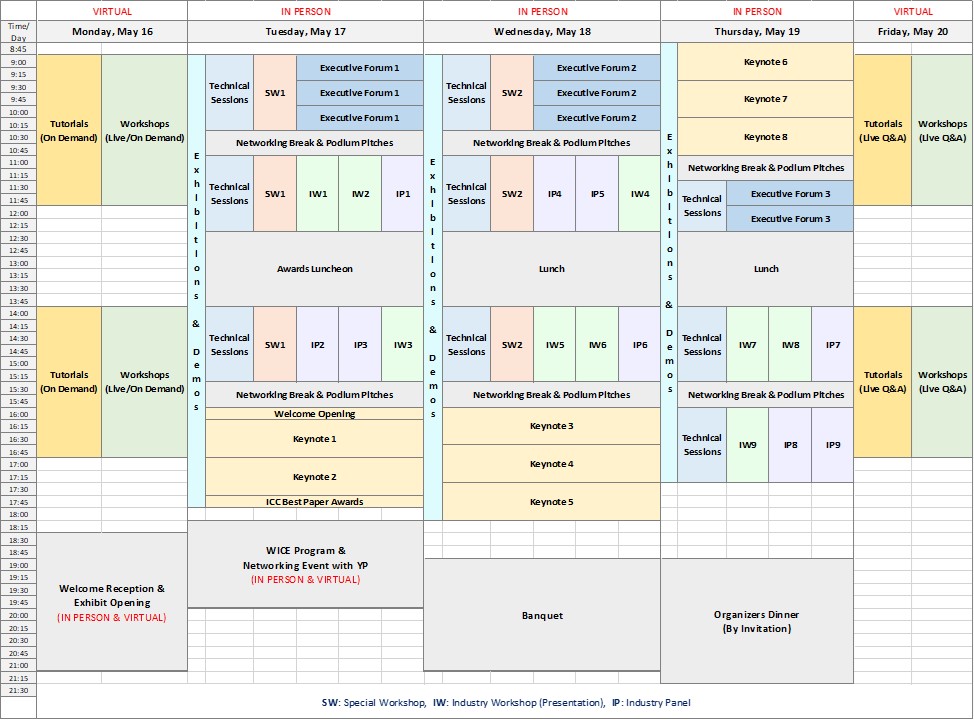



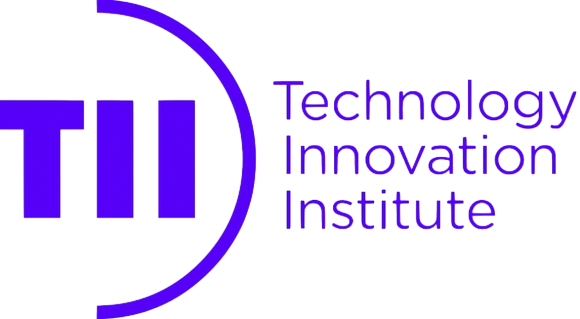
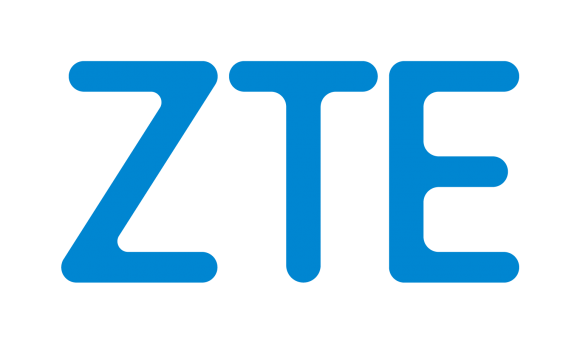
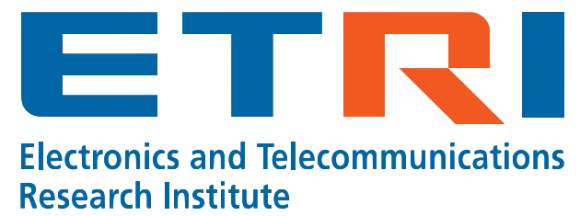
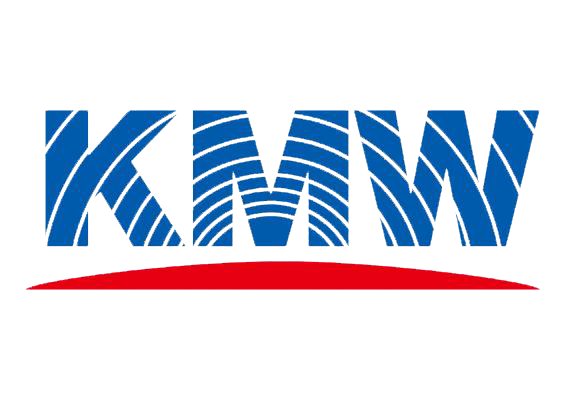

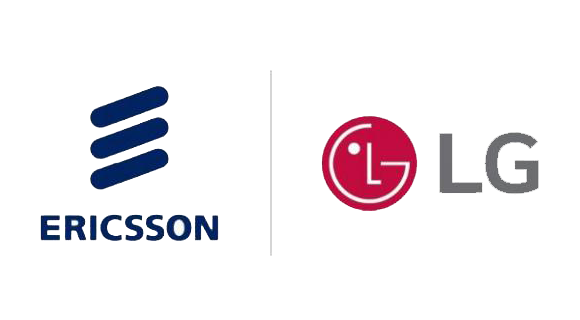


_01.png%3Fitok=vyvEGhfM)



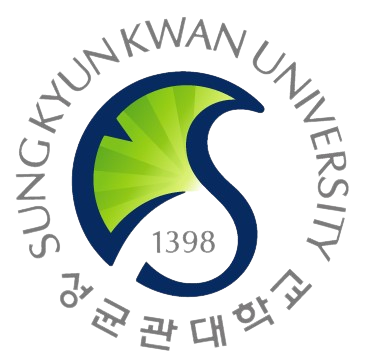
.png%3Fitok=Yj8Y43po)
